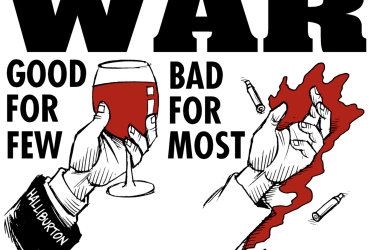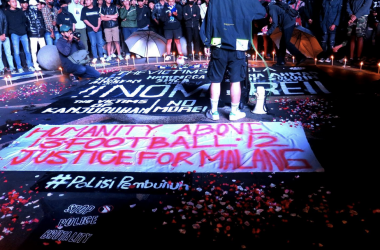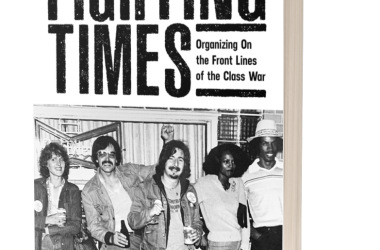By Gabriel Kuhn
The following is an open letter in response to the coordinators of Maximumrocknroll (MRR), the legendary punk zine. The coordinators have recently cited the BDS (Boycott, Divestment, Sanctions) movement as a reason to no longer feature Israeli punk bands. The explanation for this decision, to which the letter below responds, can be found in the “Letters” section of MRR #423, alongside commentary by readers. The original announcement of the decision was made in a column by one of the coordinators, Joan, in MRR #422.
Dear MRR coordinators,
I would like to comment on your decision to boycott Israeli punk bands with reference to the BDS movement. To be honest, it matters little to me whether I get to read an Israeli scene report in MRR or not. If you, as the editorial collective, decide not to run one that’s your decision. But by stating that you’re not running one because BDS compels you not to do that, you are elevating the question to one of ethical and political principle. And on that level, I cannot help commenting, since your decision, although certainly well-intended, represents a worrying trend in radical politics where a desperate search for the moral high ground replaces any meaningful political engagement.
I should perhaps say that I’m writing this neither as an “MRR shitworker” nor as an “Israeli punk,” the two demographics you seem to have mainly expected reactions from. I’m writing this as a European (citizen of Austria, resident of Sweden) who has been involved in radical politics and hardcore punk for 30 years, and who has been reading MRR on and off since the late 1980s. I should perhaps add that antiimperialism has always been a focus of my political work, and that I have several times been to both the West Bank and Gaza in support of Palestinian resistance against Israeli occupation.
I must admit that I don’t find it easy to respond to the explanation for your decision provided in MRR #423, as you explicitly say that the argument you’re putting forward is not your own but that of people who have “helped you along the way” (punks, but also “advocacy groups and BDS activists in the US”). Things are further complicated by the fact that you proceed by not actually presenting a specific argument but several arguments. So, not knowing what your exact position is, I will try to respond to the most important of the arguments you reference.
To begin with, some of what you write is irrelevant to this particular discussion. I don’t think anyone involved in it questions your right “to be explicit about your pro-Palestinian and pro-BDS stance”; the fact that you “do not want to contribute to a media culture that is predominantly Islamophobic, pro-Zionist, and anti-BDS”; the intention to “restrain yourselves from presenting content that you believe is not worth highlighting or engaging with”; the conviction that “supporting BDS and Palestine is not inherently antisemitic”; or the importance “to uplift and prioritize the voices of people who are suffering the most.” Therefore, it is pointless to throw all this into the mix.
Secondly, some of the arguments you’re offering simply don’t make any sense. For example, you write that you believe “that the voices of Palestinians are more important to present than the voices of Israeli people.” But how does publishing articles by and about Israeli punks prevent you from publishing five times as many articles by and about Palestinians? The question of how many Palestinian voices are to be heard in MRR seems entirely unrelated to whether you feature Israeli voices or not, unless you are operating on some kind of quota system that I’m unaware of. Another example: You say that “publishing interviews with Israeli bands, no matter their stance … essentially serves as a promotion of Israel the state.” How so? If you interview D.O.A., does this essentially serve as a promotion of Canada the state? What’s the difference?
Thirdly, some of your arguments are hypocritical. You stress that “even if Israeli punks are critical of the Israeli settler state, and even if they do actively work with Palestinians, they still benefit from colonialism and do not have the same fight for survival that most Palestinian people engage in on a daily basis.” This is certainly true. But it reflects realities that apply in corresponding ways to pretty much anyone involved in punk or radical politics. Regardless of their convictions, men benefit from patriarchy, whites from white supremacy, heterosexuals from heteronormativity, and US citizens (including punks, advocacy groups, and BDS activists) from US imperialism. This is an empirical fact, but it’s not what’s ethically and politically relevant. What’s ethically and politically relevant is what these people do based on the status the birth lottery and their socialization have bestowed upon them. Why should I, as an Austrian living in Sweden, boycott Israeli punks but embrace punks from the US? This is beyond me.
It seems that the only thing you could say in response to this is that there happens to be an international boycott movement directed at Israel but not at the US or any other imperialist (or wannabe imperialist) country, which means that the citizens of these countries are off the hook. This, however, is no sound ethical or political argument, it’s simply a matter of good fortune. And, let’s be honest, if there was an international boycott movement directed at, say, Russia because of its authoritarian regime, the persecution of political opponents, and the annexation of foreign territories, would you argue that this should imply a boycott of Pussy Riot and Russian anarchists? And if there was an international boycott movement directed at the US (a far more destructive imperialist power than Israel whose military strength is highly dependent on US support), would you argue that this should imply a boycott of MRR? If not, why not? How is the case of Israel different?
Related to the above, I think you really need to consider the implications of your decision and of statements such as “We must turn down Israeli content across the board for ethical reasons.” It basically means that out of all the punks around the world benefiting from structures of domination (colonialism and imperialism included) you are singling out one particular group for boycott, not based on anything the individual members of that group have done, but because of the collective entity you allege they represent: the state of Israel. Not only is it cynical to boycott people who have been persecuted because of their defiance of that very state, this logic also goes against anything that antidiscrimination theory teaches us. Your decision becomes even more puzzling when we consider that many of the people targeted by this punk boycott have taken much higher personal risks and made much bigger personal sacrifices in their fight against the Israeli occupation of Palestine than most international pro-Palestine activists I know (and that, of course, includes myself).
Finally, and by far most importantly, all of your arguments substitute moral righteousness for meaningful political action. BDS is no religion, and it ought not be turned into one. Doctrine and moral purity don’t liberate people. BDS is a political means to end Israeli occupation and to ensure the Palestinian people’s right to self-determination. This purpose must also be the guideline for its practical implementation. Now, it helps no one to isolate the forces that fight the policies of the state of Israel from within. These forces aren’t the most important ones in the struggle, they should not receive disproportionate attention, and their contradictions must not be romanticized away. But they are an important piece of the puzzle, just as white resistance against apartheid in South Africa was an important piece of the puzzle in the anti-apartheid struggle, and as the US-based movement against the war in Vietnam was an important piece of the puzzle in the defeat of the US military in Indochina. To cut such forces loose from an international resistance movement that is essential for sustaining them means to weaken this movement, not to strengthen it. This is also true in the case of Israelis who fight the occupation of Palestinian territories. The vast majority of Israeli punks belongs to them.
In solidarity,
Gabriel Kuhn
Stockholm, Sweden
July 20, 2018
More blogs from Gabriel | Back to Gabriel Kuhn’s Author Page





